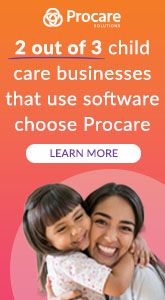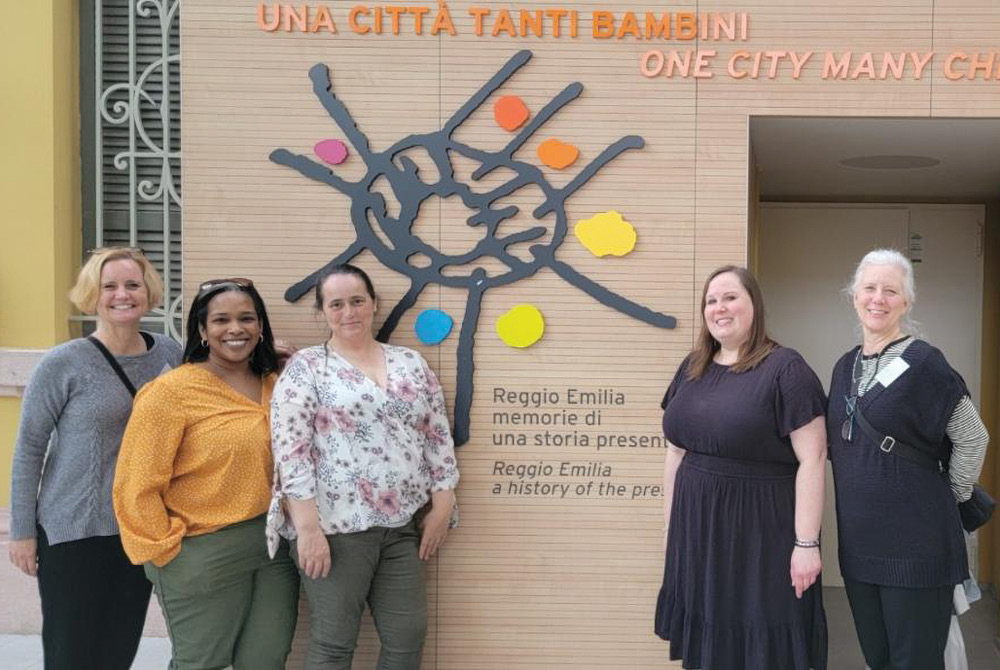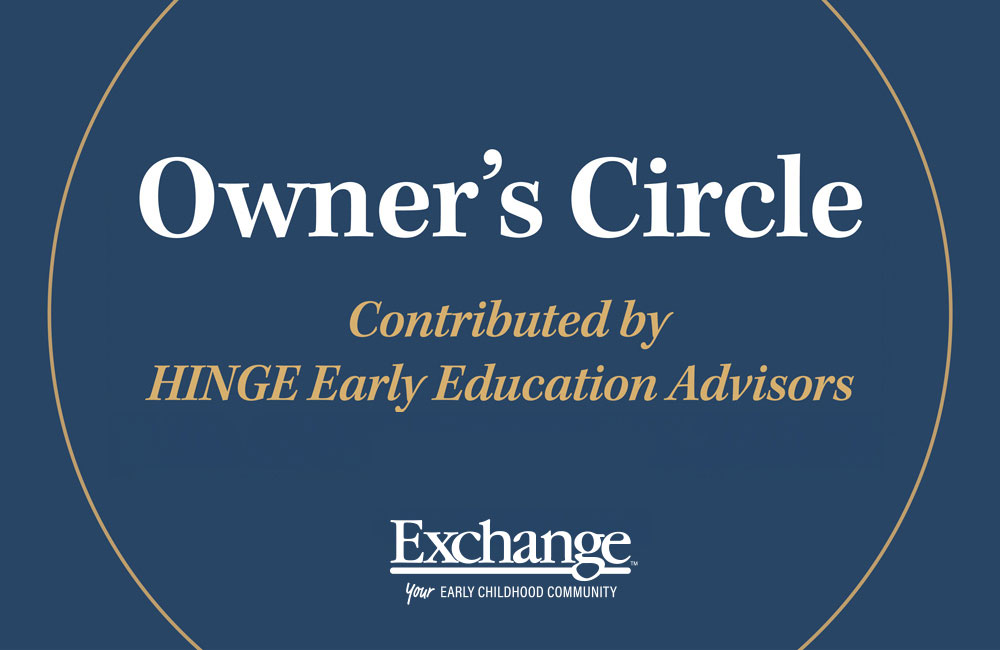The Whole Leadership Framework (2017) has energized early childhood leadership through its impact on early childhood programs and critical alignment of competencies for professional development systems. The framework encompasses a broad view of program leadership organized into three domains: leadership essentials, administrative leadership, and pedagogical leadership. Together, the domains create the necessary conditions for program growth and sustainability. The framework was initially developed in response to the seminal report, “Transforming the Workforce for Children Birth Through Age 8: A Unifying Foundation” (Institute of Medicine and National Research Council, 2015), with the goal of unifying early childhood program leadership.
The framework was published in “Building on Whole Leadership: Energizing and Strengthening Your Early Childhood Program” (Masterson, Abel, Talan, & Bella, 2019) providing a conceptual model for early childhood program leadership. Leadership is the key lever for organizational change, increasing staff retention, implementing culturally responsive approaches to equity and social justice, and strengthening the quality of program delivery (Doromal, & Markowitz, 2023; Myran & Masterson, 2020; Grant, Lee, & Hoekja, 2022; Kirby, et al, 2021).
Since its release, the Whole Leadership Framework has been utilized in college coursework, individual and program improvement efforts, research, and state systems development (Talan, et al., 2022). As of 2023, 26 states utilize the Aim4Excellence™ National Director’s Credential in early childhood professional development systems. Aim4Excellence ™ introduces participants to the efficacy of the Whole Leadership Framework in strengthening the work of programs and systems that provide early learning foundations for young children and their families. For states that are moving toward credentialing and the use of competencies, the Whole Leadership Framework provides an organizing structure.
A range of current issues in the field informed the updates to the Whole Leadership Framework. A vast shift in priorities occurred due to the pandemic: social issues now place diversity, equity, and inclusion at the forefront of the field of early childhood education and care. There is a greater emphasis on the role of the leader in guiding continuous quality improvement in programs and an awareness that the exacerbated workforce crisis will require innovative strategies to attract and retain qualified staff.
Voices from the field influenced our processes and decision-making about the changes to the Whole Leadership Framework. The Building Leaders Research Project, funded by the Foundation for Child Development, collected data from a national sample of diverse early childhood leaders. The study included four waves of data collection in 2020-2021, with follow-up data collection from program leaders of color conducted in 2021-2022. Regarding the Whole Leadership Framework, 93 percent of participants agreed that the three domains of the framework effectively organize core competencies of program leadership across sectors and settings. A strong recommendation, however, was to strengthen the framework by embedding racial equity and social justice as a through-line in leadership practices.
Feedback on the framework was sought externally through presentations at national conferences, as well as internally from McCormick Center faculty and staff who utilized the framework as a conceptual model for leadership academies and other professional learning experiences. Specific enhancements and changes were suggested. Updates included resources to help leaders manage the evolving challenges and demands faced by programs within the current early childhood landscape. Key revisions focused on consideration of the diverse roles and responsibilities of leaders as they provide oversight for culturally and linguistically diverse programs. Additionally, program leaders were provided explicit support for creating a healthy organizational climate and culture.
Revised Competencies
The revised Whole Leadership Framework is aligned with the Closing the Opportunity Gap for Children Birth to Age 8 recommendations for “a unified [early childhood] system that will build a corps of diverse, competent, well-trained, well-supported, and appropriately compensated early childhood educators and program leaders, across all age groups and program settings” (National Academies, 2023). The most recent report from the National Academies addresses the persistent need for a unifying, evidence-based set of competencies for early childhood program leaders.
Leadership Essentials serves as the foundation for administrative and pedagogical leadership by creating a culture of caring, equity, and improvement in early childhood programs. This domain was changed significantly from the earlier framework. Previously, the domain was defined by nine personal attributes associated with leadership essentials—adaptability, authenticity, creativity, empathy, humility, learning, persistence, self-efficacy, and transparency. The revised framework adds the attribute of trust and situates the 10 attributes within the context of competencies in intrapersonal and interpersonal leadership. This competency area identifies behaviors that can be developed and strengthened and that contribute to a healthy organizational climate and culture. Reflective and intentional practice, including strength-based supervision and inclusive leadership, are hallmarks of competency areas in Leadership Essentials. This domain was revised to include two additional competency areas: leadership for continuous quality improvement and culturally responsive leadership.
ADVERTISEMENT
Leadership for continuous quality improvement means committing to continuous quality improvement as a philosophy and a set of practices embedded at all levels of the organization. CQI reflects a belief system that includes strengths-based and growth-oriented practices, building on the perspectives and capabilities of staff, and collaborating with others to align teaching practices with the updated standards and competencies of the profession. CQI reflects a set of embedded routines at the organizational and classroom levels that can be observed, assessed, and enhanced. This competency area includes: employing a strengths-based approach to developing people, facilitating shared decision-making, and implementing iterative cycles of improvement inclusive of planning, implementing, and reviewing outcomes.
Culturally responsive leadership refers to applying an anti-bias lens to all facets of the organization and taking action to modify behavior or policy where appropriate. Culturally responsive leadership starts with self-reflection on how personal biases impact behavior and then leads to action to make changes in professional practice. Leaders need to first model personal and professional self-awareness of bias and then provide opportunities for staff to develop their skills for self-awareness and identification of bias.
This competency area requires leaders to demonstrate strong communication skills and professionalism. Leaders need to develop a complex lens of understanding about their role in leading inclusive practices across an organization. This work includes removing barriers to participation that are unrecognized and identifying and mediating bias in all forms, as it impacts organizational health, teaching decisions, and a sense of belonging by all stakeholders. The leader needs to facilitate courageous conversations about implicit bias, systemic racism, and social justice.
Administrative Leadership involves coordinating work and mobilizing people to ensure the organization remains stable and continues to thrive. There were two significant revisions to the administrative leadership domain. First, systems thinking and systems development were added to the overall description of the domain. While both concepts were implied in the first version, it was important to include them clearly in the definition, so people recognize the significance of these components for improving and sustaining quality. Leaders need to be able to understand the connections within their programs, as well as recognize the ways the external environment impacts and is impacted by the early care and education program.
A second change to administrative leadership is related to the definition of operational leadership. The definition was revised to include “ensuring sufficient staffing.” This revision is reflective of the more recent impacts of COVID-19 on the landscape of early care and education, as well as the historic lack of infrastructure to meet the needs of children and families with adequate numbers of well-qualified staff. These changes draw attention to the need for administrators to create conditions that support and nurture staff, resulting in staffing stability.
Pedagogical Leadership requires leaders to facilitate a community of learning that builds on the strengths of children, families, and staff. In collaboration with program staff, leaders ensure fidelity to research-based curricula, observing, documenting, and assessing children’s development and learning, and using data for evaluation, to optimize learning environments and to empower families.
For the area of instructional leadership, the revision incorporated the principles from the revised National Association for the Education of Young Children Statement on Developmentally Appropriate Practice (2020) and a more culturally and linguistically inclusive curriculum that aligns with the NAEYC Position Statement on Equity (2019). Within instructional leadership, principles of anti-bias education were incorporated, with relevance and responsiveness to all early childhood education professionals. The revision to pedagogical leadership resulted in a clearer vision of the role of leaders in facilitating trauma-informed teaching. The revision also made room for leaders to create systematically guided quality improvement goals utilizing reflective practice.
The area of family leadership shifted from a focus on engagement to building on family strengths, promoting equitable engagement, and encouraging family advocacy on behalf of children. This area more clearly addresses the need to identify and overcome bias in family engagement and barriers to participation. Families are included as collaborators and engaged in decision-making about programming and curriculum planning to ensure the program reflects family contexts and builds on family strengths. Family leadership includes active engagement in governing or advisory committees.

Next Steps
Early childhood leaders at the system, program, and individual levels are encouraged to explore the revised framework and consider opportunities to engage program staff and families in utilizing the framework in everyday program activities. In addition, leaders can use the framework as a foundation for internal and external communication about the importance of early childhood education and care. Quality improvement specialists, early childhood systems developers, and policymakers can embed the competency areas of the framework in professional development, evaluation, and early childhood credentialing.
The revised Whole Leadership Framework provides a unified set of leadership competencies as mandated by the field that are applicable across early childhood sectors and settings. It offers guidance for internal and external program leadership development and can be used as a tool to advocate on behalf of early childhood leadership, programs, and the field as a whole.
To learn more about the Whole Leadership Framework, download a copy from the McCormick Center for Early Childhood Leadership at mccormickcenter.nl.edu/WLFgraphic2023.
References
Abel, M., Talan, T., & Masterson, M. (2017). Whole leadership: A framework for early childhood programs. Exchange, 233, 22-25.
Amzat, I.H. & Valdez, N.P. (Eds). (2017). Teacher empowerment toward professional development and practices: Perspectives across borders. Springer.
Bella, J., Abel, M., Bloom, P.J., & Talan, T. (2017). Administrator Role Perception Survey. McCormick Center for Early Childhood Leadership. mccormickcenter.nl.edu
Chen, D. & Yang, X. (2022). Talk the Walk and Walk the Talk: Gearing toward a culturally responsive leadership approach. Asia-Pacific Educational Resources, 32(3), 285-295.
Davis Schoch, A. & Gal-Szabo, D. (2023). Advancing Racial Equity in Early Childhood Through Infant and Early Childhood Mental Health Consultation. Child Trends. cms.childtrends.org
Doromal, J. & Markowitz, A. (2023). Following the leader: associations between leader support and teacher retention in child care settings. Early Childhood Research Quarterly, 65, 250-260.
Grant, K., Lee, V., & Hoekje, B. (2022). Bridging Multilingual Families and Schools: Cultural Brokering as Social Justice Leadership Practice. Journal of Family Diversity in Education, 5(1): 37-58.
Institutes of Medicine & National Research Council. (2015). Transforming the workforce for children birth through age 8. LaRue Allen and Bridget B. Kelly. Authors: Committee on the Science of Children Birth to Age 8: Deepening and Broadening the Foundation for Success; Board on Children, Youth, and Families; Institute of Medicine; National Research Council.
Kirby, G., Douglass, A., Lyskawa, J., Jones, C., & Malone, L. 2021). Understanding leadership in early care and education: A literature review. OPRE Report 2021-02. Office of Planning, Research, and Evaluation, Administration for Children and Families, U.S. Department of Health and Human Services.
Levine Coley, R., Spielvogel, B., Kruzik, C., Miller, P., Betancur, L., & Votruba-Drzal, E. (2020). Explaining income disparities in young children’s development: The role of community contexts and family processes. Early Childhood Research Quarterly, 55, 295-311.
Masterson, M., Abel, M., Talan, T., & Bella, J. (2019). Building on Whole Leadership: Engergizing and Strengthening Your Early Childhood Program. Gryphon House, Inc.
Myran, S. & Masterson, M. (2020). Training early childhood leaders: Developing a new paradigm for professional development using a practice to theory approach. School Effectiveness and School Improvement. doi: 10.1080/09243453.2020.1803924.
National Academies of Science, Engineering, and Medicine. (2023). Closing the opportunity gap for young children. The National Academies Press. doi.org/10.17226/26743.
NAEYC. (2020). Statement on developmentally appropriate practice. National Association for the Education of Young Children.
Talan, T.N., Bella, J.M., & Bloom, P.J. (2022). The Program Administration Scale: Measuring Whole Leadership in Early Childhood Centers, 3rd Edition. Teachers College Press.
Related
ADVERTISEMENT













